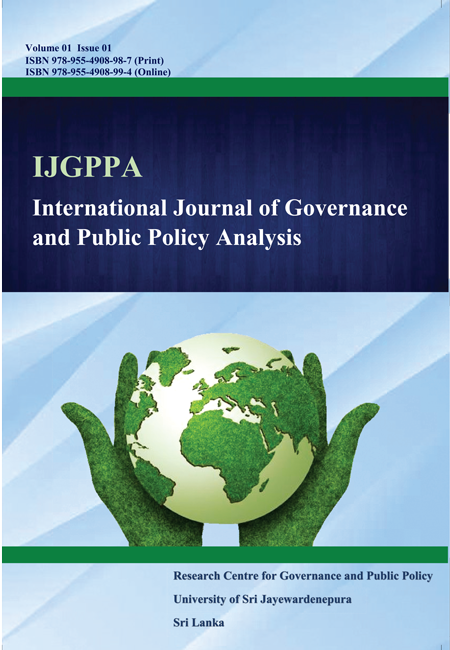School Dropout among Young Girls in the Estate Sector in Matale District of Sri Lanka
Abstract
A better education system ensures inclusive, equitable and affordable learning opportunities. Access to an education system is a fundamental right of a human being. Even though, Sri Lanka records a significance literacy rate in South Asian region, educational standards in the plantation sector of the state is still lagging behind. Tea plantation sector is a major source of livelihood for estate community of the country occupying a prominent place in the plantation sector of the Central Province which constitutes of three Districts. The number of young girls who dropout from school in the estate sector in Matale District is higher. It is reported that the dropout rate for the estate sector is approximately 8.4 percent at grade five as compared to just 1.4 percent for whole country (Department of Census and Statistics, 2007). The main focus of this study is to find out the reasons for school dropout of young girls in the estate sector in Matale and provide policy measures to mitigate this issue. This study is mainly based on qualitative research methods. Semi structured interviews were used to collect the data. The population totally consists of young girls within the age limit of 17- 25 years in Matale District and a sample of 40 young girls has been selected from 1279 through convenient sampling method. Substantial descriptions were used in the data analysis. Financial difficulties, teenage pregnancy, early marriage and lack of infrastructure are the main reasons for school dropouts in the selected estates. Policy measures are suggested to address these issues.
Keywords: Estate sector, School dropouts, Causes, Girls

